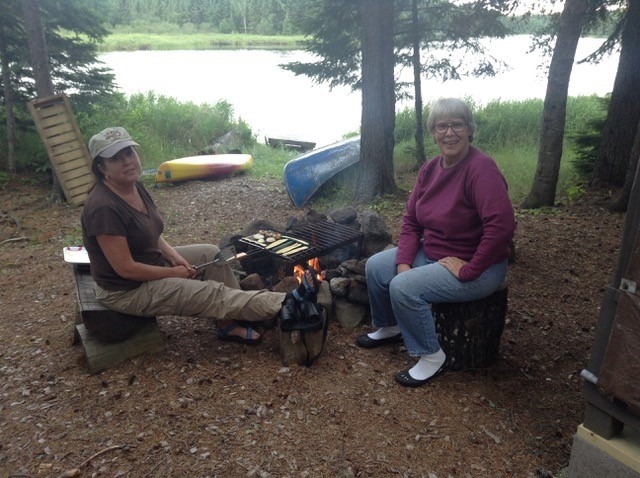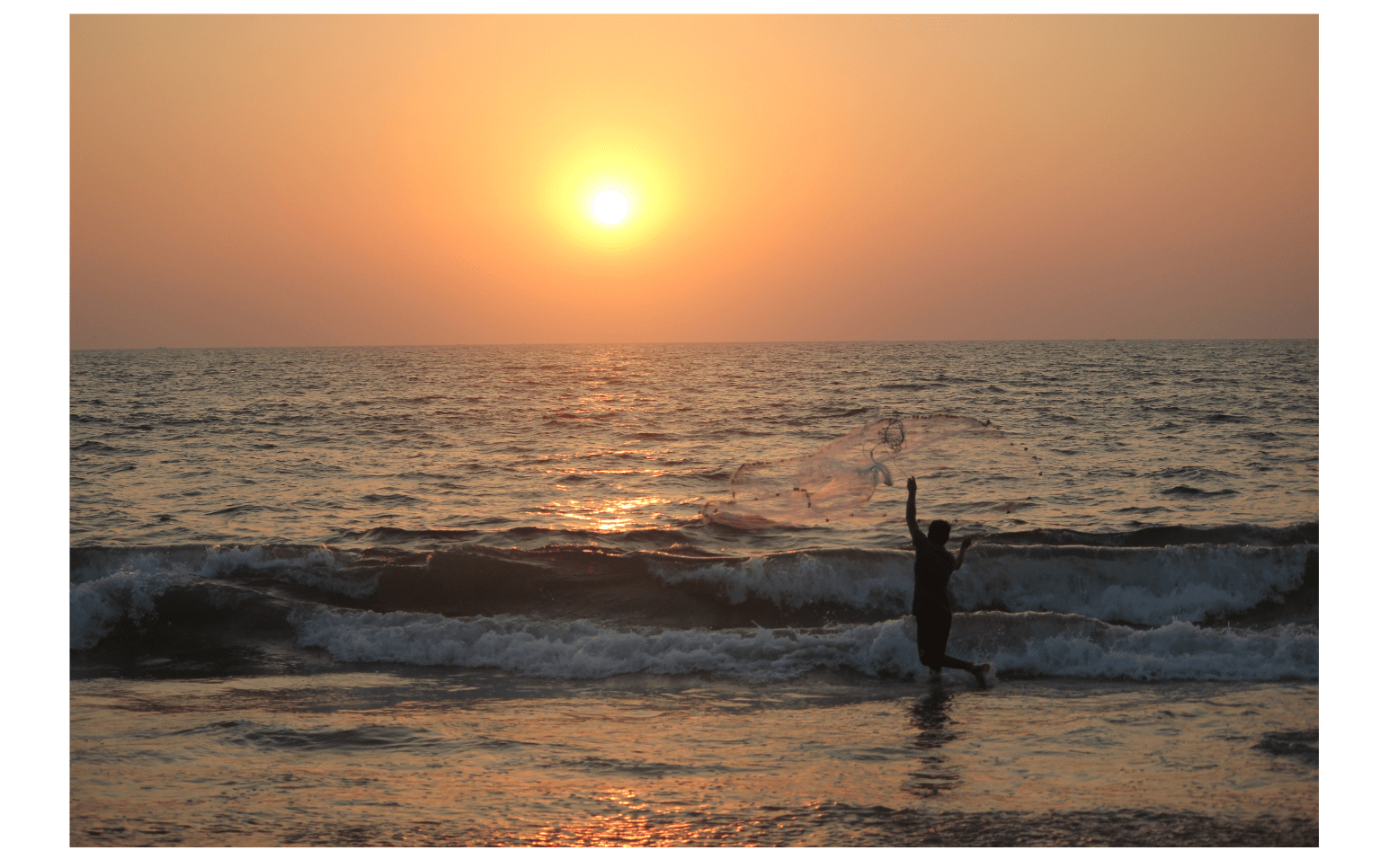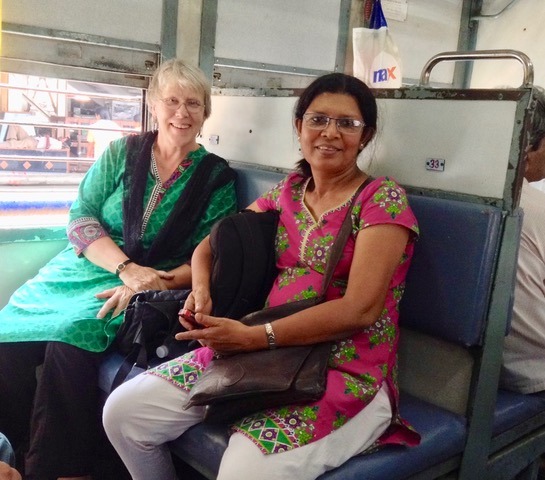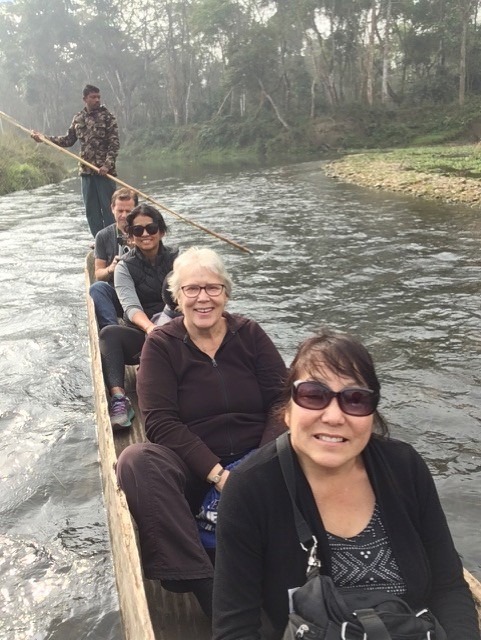Okontoe seeks to be a place of rest for everyone, but we especially want to be a refuge for people in ministry. But rest can be hard—especially for missionaries and pastors.
So we asked Diane Williams to share some insights with us. Diane works with Youth With a Mission to provide Member Care for missionary families. She was a missionary with YWAM all over the world (more about that later!) before making her home base in Arizona.

We’ve loved having Diane come up to Okontoe for decades. Here, she shares what she’s learned about rest and how it relates to ministry:
Q: Tell us a bit about your background.
I grew up in Coon Rapids, Minnesota. I came to the Lord when I was fourteen at a Pioneer Girls camp. So camping and outdoors were very much at the beginning of my Christian life.
I joined YWAM in 1978 and have been with them ever since.
The first time I went up to Okontoe was in the early 70s. Bill Barr, Sr. and Willie Barr were running the camp at that time. A guy from my church, Way of the Cross, named Gene Mitchell told us about the campground. And so I went up there for the first time in the early 70s.
Over the years, I brought a number of missionary friends with me. I brought some friends when I was working in Nepal and India. I taught English in Hungary for a few years, so I brought a couple of those friends along as well.
Q: So you mentioned Nepal, Hungary, and India. Did you live anywhere else as well?
Yeah, I lived on a house boat in the harbor in Amsterdam. Then I taught English in Hungary in the early 90s, worked as a social worker at a hospital in Nepal, and was a member care worker and retreat house director in India.
Q: What are some of the most important things you’ve learned about working with people in ministry?
I think to be a good listener and allow people to be who they are—to not try to fix people. Create an environment where people can be who they are and not have to pretend. Be an encourager. Be kind to others, for many people are fighting hard battles. (There are some great books about this called Missionary Without Pretending and Suffering Without Pretending.)
I started a retreat house in India in 2006. Before that, I was traveling around different places in India, Nepal, Bangladesh and visiting people on site, and finding they were so exhausted, they were so stressed, they were so burnt out. They weren’t taking breaks, they weren’t taking vacations. One guy about my age said, “In 35 years of ministry, I’ve never had a vacation.”
There’s a mentality among Christian workers in India especially that says, “There’s so much need in the world. So we can’t possibly take a break. I’ve got to be there for other people.”
I read a quote once from a pastor named Robert Murray McCheyne. He said, “God has given me a message, and a horse on which to carry the message. And I’ve killed the horse, and now I can’t carry the message.” He died in his late 20s. That really stuck with me; if we abuse our bodies, and we don’t take care of ourselves, we’re not going to make it. We’re not going to be around to bring the message that God has given to us.
In the north part of India, in the Himalayas, there’s this prayer trek that some Norwegian YWAMers were running regularly. And I joined one of these and started climbing. I was trying to keep up with all the younger ones (I was late 50s or early 60s at the time), and I started getting exhausted. I almost fainted, just climbing, climbing, climbing, up, up, up. And then I said, “Oh, I gotta sit down.” So then they ran over. They brought some sugar for me and some water. Then I got revived and started going up the hill again.
And then the Lord said, “I’ve given you a healthy body. You keep it that way.” So that taught me the importance of caring for our bodies and why we look after ourselves. And part of it is rest. That’s what your whole thing is with Okontoe—it’s a place of rest for people.
Q: You mentioned the retreat house. What was that like?
People came for retreats. I had some guided retreat booklets that I gave them. They would come, and I’d give them a little booklet, start them out in prayer, and then send them on their way.
Then at the end of the day, I’d just ask, “How was it? What did God say? Anything you want to share and any prayer that you want?” It was very much a time of reflection and contemplation on the Word of God. We also conducted a number of small group retreats for ministry teams as well.
When my friends and I were envisioning this, there were so many burnt out YWAMers—some of them dying early because of not taking care of themselves. So we created this place for rest, refreshment, and restoration.
If people were going to come there, there needed to be water, and there needed to be a lot of green. So we said, “Ooh, that’s Goa on the west coast of India! We have to have it there!”

This is the same for Okontoe, too. God made a lot of green, and He made a lot of blue sky and blue water. So there must be something restorative about those two things.
Q: What makes rest difficult or different for people in ministry?
They feel like there’s too many needs in the world so they can’t rest. They say, “Who’s going to replace me when I’m gone?”
And finances, you know: “I don’t have enough money to take a break.”
For people in ministry, especially those in South Asia, they feel it’s more spiritual to be working really, really, really hard. “It’s better to burn out than to rust out.” There’s that kind of thinking.
Q: What are your thoughts on going into the wilderness for rest?
Going into the wilderness challenges you. “Will I be able to do this? Can I carry this canoe? Can I do that portage with a canoe on my shoulders?” There’s that kind of thing that’s challenging. But it’s also restorative when you get there.
Q: How can people in ministry prioritize rest more?
Schedule it in. Make it a priority.
Say, “I’m going to take a day of rest. I’m going to go out, and I’m going to not be available today.” Don’t take your cell phone. Tell people, “If you’ve got to reach me, here are these other people who are nearby. But I’m not available.” And if people want to have a meeting or want to talk to you, say, “Oh, no, I’m sorry, I already have an appointment.” It’s an appointment with God. And it is important.
Q: Do you feel like you had leaders supporting rest while you were on the mission field?
I had wonderful leaders in YWAM who believed that people were more important than tasks. But there were others who did not see the value of rest. And then when they started seeing their colleagues and themselves get sick or get overwhelmed or get depressed or burn out or quit or die, they said, “Uh oh. I think we’ve got to make some changes.” So they made changes as the leaders have gotten older and seen the value of rest.
If people have only been in short term missions, yeah, you can run for a short period of time, then go home. But if you stay in missions, and you’re there for thirty, forty years, you’re in a marathon, and that’s a whole different way of doing things. Some of them are understanding that.

Q: We talked about different mentalities that make it hard to rest. What can people do to battle those mentalities?
Telling ourselves that we’re not the saviors of the world–Jesus is. And it does not depend upon me. God can do it without me. (There’s a great book about that, too, called God Can do it Without Me.)
God can use donkeys, He can use handwriting on the wall. He doesn’t need us. Thankfully, He can use us, and we can work in His service. But He can find somebody else.
Q: How can people support full time missionaries?
Encourage people, “It’s okay. You don’t have to be on all the time.” Even looking at the Scriptures—Jesus withdrawing from the crowds or going away in the early morning and spending time with His Father. He was a good model of pacing Himself and resting along the way.
Having church members and family members invite them over for a meal where they don’t have to cook, especially when they come back from overseas. That can support people.
Family members or friends—just come on over and hang out. Let them be a real person.
And invite people along when you’re doing something, like going shopping. If they haven’t been in the United States for a while, ask, “Do you want to come along with me shopping?” Because that’s overwhelming if you’ve been in a third world country. I couldn’t even buy a candy bar.
The other thing—and I’ll go back to the very first thing I said—is being a good listener. So, when you invite someone over to your house, just listen. Let the missionary tell what it’s been like. Let them share their story. Hang out. Have your kids hang out with one another—your kids and the missionaries’ kids. Normalize life a bit, and be there as a good listener.
And, if the finances are available, or if you know of places where they can go, send them off on a week vacation or a break. Pay for it, or at least say, “We’ll watch your dog. We’ll do something just so you can go.”
Q: Any final thoughts?
I’m a firm believer in wilderness experiences—challenging yourself and enjoying the nature and the beauty. Both of those things are important for developing character.
And people ask me, “Where’s the best place you’ve ever been? What’s your favorite place in the world?” Without hesitation I say, “The Boundary Waters Canoe Area in northern Minnesota.”

Many thanks to Diane for sharing her thoughts with us!
Article by Kaylee Selin
